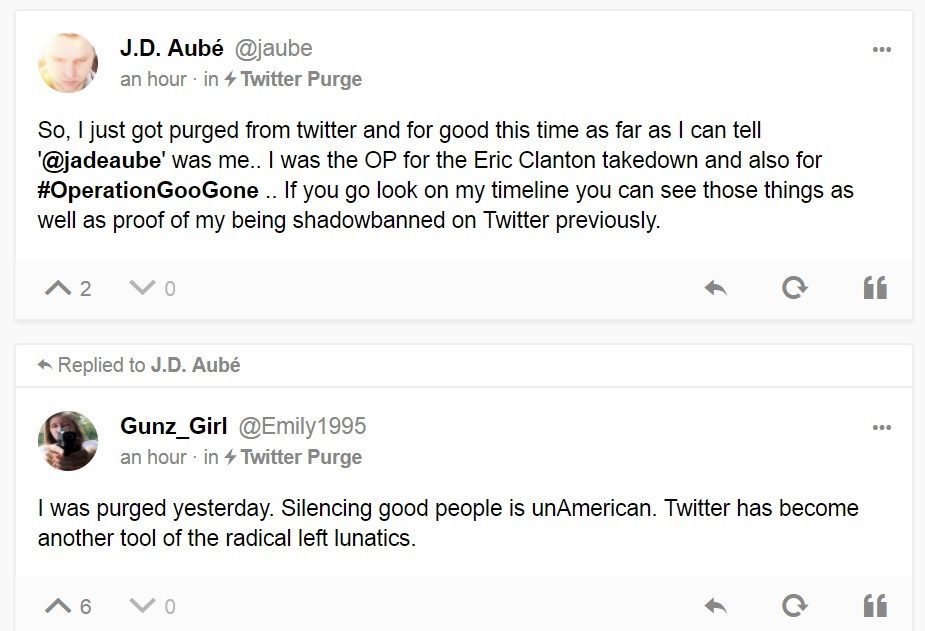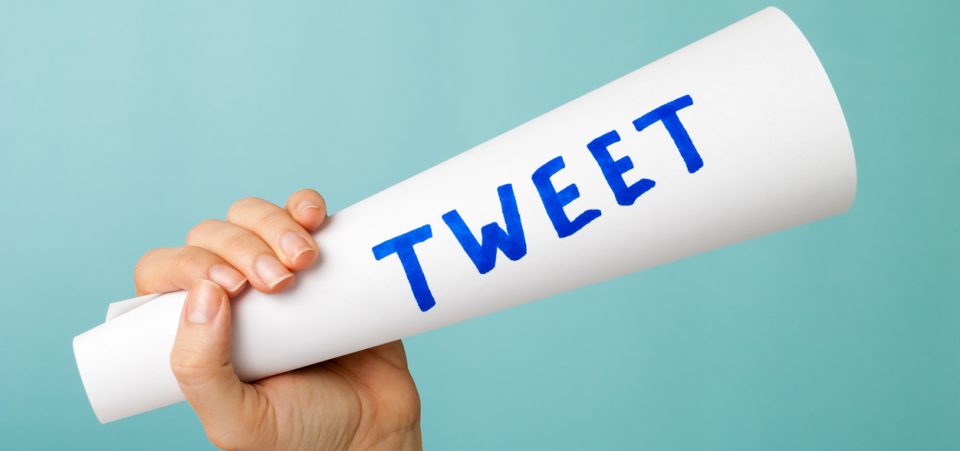We Seek to Prove or Disprove the Evidence That Twitter is Banning Conservatives and Associated Thought
The Internet is rife with rumors that Twitter is banning conservatives and like-minded thought. Chatter has been ramping up for several weeks, right ahead of the hallmark Future of Internet Freedom Conference in Washington. Dozens of right-leaning Twitter users have taken to the Internet to complain about outright bans and blocked posts. We explore.
Recently, the trickle of evidence became a surge when leading conservative-right investigative journalist, Mike Cernovich, claimed “purge.” Of course, he wasn’t the only one. But with over 80,600 tweets and 379,000 followers under his belt, his megaphone is among the biggest. It certainly persuaded us to take a closer look.
Right before big #NetNeutrality debate, and Twitter is doing a huge purge, YouTube demonetized conservatives, and Google is caught being evil.
Great job guys, this will really help!https://t.co/4hihFXDEyG
— Mike Cernovich ???????? (@Cernovich) November 22, 2017
So look we did, and the conclusion came rather quickly. We found voluminous amounts of evidence of Twitter accounts being closed, and one smoking gun courtesy of FCC Chairman Agit Pai. More on that a little latter.
Regarding the latter, the forced conservative exodus on Twitter is hard to deny. Since August, several high-profile right-leaning figureheads were banned from the platform. These included the likes of Rose McGowan (actress and Harvey Weinstein accuser), Roger Stone (political analyst and Trump insider), Elizabeth Johnston (Christian blogger), and Baked Alaska (conservative social media commentator). But were these bans part of a systematic approach or enforced based on individual circumstances?
According to often left-leaning Wikipedia’s “List of people suspended from Twitter,” the amount of people suspended or disbarred from Twitter has increased drastically since August 2017. Since that time, 16 accounts have been impacted versus 22 in the previous six years dating back to July 2011. (Source: “List of people suspended from Twitter,” Wikipedia, last accessed November 29, 2017.)
Granted, there are a few caveats with the above paragraph. The list may paint an incomplete picture of the total number of accounts actually banned. Neither do all the suspensions on the list pertain to right-leaning accounts (some are for entirely different reasons or ideology). But viewed in a trend-related context, an anecdotal starting point becomes established.
More evidence of Twitter banning accounts broke on November 15, when Brietbart claimed a terms of service (TOS) update lead to de-verification or outright bans of “many conservative and right-wing media personalities”. The article goes on to note that users could now be de-verified for “directly attacking or threatening people on the basis of race, ethnicity, national origin, sexual orientation, gender, gender identity, religious affiliation, age, disability, or diseases.” (Source: “Twitter Updates Terms of Service as Conservative Figures Are Purged from Platform,” Breitbart, November 15, 2017.)
Given the fact that conservatives are the demographic most likely to resist progressive multicultural and multigender ideals, it makes sense they would be most affected. Speech which was tolerated previously may have violated the updated TOS, leading to the cascade of bans.
Please note, we have no doubt many (if not most) of the purged accounts involved “alt-right” users. They are typically defined as having far-right ideologies who embrace white nationalist dogma. But the dragnet aimed at quieting alt-right voices has seemingly netted many conservatives in the process. At least, if the exploding user base on upstart Gab is any indication.
Just spending 10 minutes on Gab’s interface proves this last statement. There are dozens of first-hand accounts of users switching to Gab from Twitter because they were outright banned or posts weren’t showing up. Everyday, threads such as “Twitter Purge” and “Twitter Double Standards” receive hundreds of comments. Many of these replies deal with, you guessed it, why they joined Gab after being banned by Twitter. It’s treasure trove of anecdotal evidence which confirms the Internet chatter. Below are some pertinent screenshots:



FCC Chair Agit Pai: The Smoking Gun
We talked earlier about the smoking gun in all this. Yesterday, it was provided by the FCC’s Agit Pai.
Pai told the Future of Internet Freedom conference held in Washington that edge providers like Twitter pose a bigger threat to the “Open Internet” than Internet service providers. Pai noted that edge providers, or social media providers, “routinely block and discriminate” and that the government shouldn’t abet their efforts to dominate the Internet. (Source: “Pai: Twitter Is Bigger Threat to Open Net Than ISPs,” B&C, November 28, 2017.)
But it gets better. Pai went on to criticize Twitter directly, saying that Twitter was discriminating on the basis of content, and that such edge platforms routinely discriminated on the basis of viewpoint. While he doesn’t outright say it, obviously Pai isn’t referring to liberals, minorities, or progressives. Those groups are the protected class. He coming about as close as one can to referencing the systematic silencing of conservatives and “alt-right” opinion without actually saying it.
Pai goes on to reference two specific cases of unjust conservative banning. The first related to Rep. Marsha Blackburn, the Republican chair of the House Communications subcommittee. Her Twitter account was blocked from advertising her Senate campaign launch video because it contained a pro-life message. Such messages are generally regarded as conservative ideals.
The second case involves the so-called (net neutrality) Day of Action, where Twiiter warned users that a link to a company on the topic of Internet regulation “may be unsafe.” Chairperson Pai chastised the Twitter “double standard when it comes to suspending or de-verifying conservative users’ accounts as opposed to those of liberal users.” He regards such conduct as contrary to the FCC mandate of opening up the Internet. (Source: Ibid.)
Our Verdict
If the hundreds of anecdotal accounts weren’t enough, the FCC chair blew the barn doors wide open yesterday. Specifically, he criticized Twitter’s direct engagement of anti-conservative censorship, citing two case studies as evidence.
As such, our answer to the question “is Twitter banning Conservatives and “alt-right” opinions?” is a resounding YES. Although “alt-right” and persons with far-right ideologies are most impacted, garden-variety conservatives who espouse nationalist, pro-life, and anti-immigration views are being banned. The banning certainly appears to be systematic, and conducted with an overarching ideological purpose.
This comes as no surprise to people following the virtue signalling coming out of Silicon Valley.







